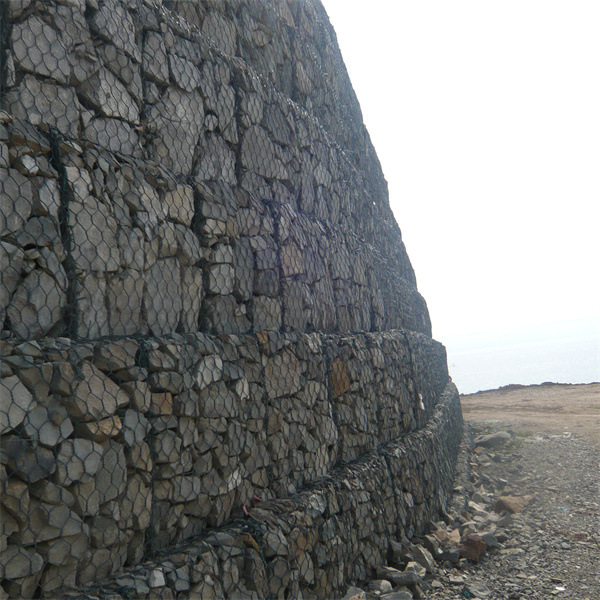Out . 03, 2024 06:30 Back to list
Stone Gabion Walls Custom Made by Leading Manufacturers for Effective Retaining Solutions
The Role of Stone Gabion Retaining Walls in Modern Construction
In the evolving landscape of modern construction, the demand for sustainable and aesthetically pleasing structures has increased, leading to the rise of innovative solutions such as stone gabion retaining walls. Manufactured by specialized gabion wall manufacturers, these structures have become a preferred choice for engineers and architects alike.
What Are Gabion Walls?
Gabion walls are essentially cages or boxes, typically made of steel wire or synthetic materials, filled with stones or rocks. These structures are designed to retain soil, manage water drainage, and provide structural support while also enhancing the landscaping of an area. The term “gabion” itself is derived from the Italian word gabbione, meaning big cage, which aptly describes their structure.
Benefits of Stone Gabion Retaining Walls
1. Stability and Strength One of the primary advantages of stone gabions is their ability to provide excellent stability. The interconnected stones within the cages shift and settle naturally, allowing the walls to adapt to ground movements without cracking or failing. This flexibility is especially beneficial in areas with unstable soil or varying weather conditions.
2. Eco-Friendly Solution Stone gabion retaining walls are considered an environmentally friendly option. By using local materials such as stone and rock, these walls minimize the carbon footprint associated with transportation. Furthermore, gabions can promote the growth of vegetation through the gaps between stones, allowing them to blend seamlessly into the natural landscape.
3. Cost-Effective Compared to traditional concrete retaining walls, stone gabion walls can be more cost-effective. The materials are often less expensive, and the installation process requires less labor and equipment. As a result, property developers and construction companies find gabion walls to be a financially viable option.
stone gabion retaining wall manufacturer

4. Versatility Gabion walls come in various sizes and configurations, making them suitable for a wide range of applications. Whether used for hillside stabilization, waterfront properties, or decorative landscaping, these walls can easily adapt to meet specific design requirements.
5. Drainage and Erosion Control Stone gabion walls facilitate effective drainage due to their porous nature. Water can flow through the gaps in the stones, reducing the pressure on the wall and minimizing the risk of erosion. This feature is particularly important in regions prone to heavy rainfall or flooding.
Choosing a Manufacturer
When looking for stone gabion retaining wall manufacturers, it is crucial to consider a few factors. Ensure that the manufacturer adheres to quality standards and uses durable materials that can withstand environmental stresses. Additionally, it's beneficial to choose manufacturers who offer customized solutions tailored to your project’s specific needs.
Reputable manufacturers often provide comprehensive support, from design advice to installation guidance, ensuring the longevity and effectiveness of the gabion walls. It's also wise to seek reviews or testimonials from previous clients to gauge the reliability and quality of the manufacturer’s products.
Conclusion
Stone gabion retaining walls represent a significant step forward in the realm of construction and civil engineering. They bring together practicality and aesthetic appeal while addressing pressing issues such as erosion control and sustainability. As the construction industry continues to evolve, the adoption of innovative solutions like gabion walls demonstrates a commitment to creating resilient and environmentally-friendly structures. By partnering with reputable manufacturers, builders can ensure that they incorporate these benefits into their projects, enhancing both functionality and appearance in the built environment.
-
Why PVC Coated Gabion Mattress Is the Best Solution for Long-Term Erosion Control
NewsMay.23,2025
-
Gabion Wire Mesh: The Reinforced Solution for Modern Construction and Landscape Design
NewsMay.23,2025
-
Gabion Wall: The Flexible, Seismic-Resistant Solution for Modern Landscaping and Construction
NewsMay.23,2025
-
Gabion Wall Solutions: The Durable, Decorative, and Affordable Choice for Every Landscape
NewsMay.23,2025
-
Gabion Basket: The Durable and Flexible Alternative to Traditional Retaining Walls
NewsMay.23,2025
-
Gabion Basket: The Proven Solution for Slope Stability and Flood Control
NewsMay.23,2025
-
Versatility of Chain Link Fence Gabion
NewsMay.13,2025






